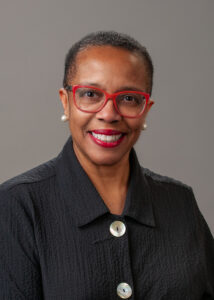Gwenesta B. Melton, MD, FACR, of Fayetteville, N.C., took the helm of the ACR’s Affiliate Society Council (ASC) with a clear goal, she says: to “reenergize the council and to ensure that it was strong and working in collaboration with the ACR, the Coalition of State Rheumatology Organizations [CSRO] and with the Association of Women in Rheumatology [AWIR],” of which she is vice president.

Dr. Melton
Nearly two years on, Dr. Melton is happy to report that the ASC “has taken on a coalition life.” With the help of Joseph Cantrell, JD, ACR’s director of state affairs and community relations, the linkage between AWIR and the ASC has gotten stronger.
This was evidenced by the joint participation of Dr. Melton and ASC co-chair Stephanie Ott, MD, of Lancaster, Ohio, in the annual AWIR conference held in Orlando in July. With Paige Colston, ACR’s manager of grassroots engagement and RheumPAC, and other ACR representatives present, Drs. Ott and Melton gave a report on the ASC’s accomplishments in the last year. The ACR also staffed a display booth. The ACR presence at the conference enabled more impact for the two organizations’ collaborations, Dr. Melton says. “We were also able to solicit our AWIR audience for contributions to RheumPAC and raised $5,000,” she says.
Moving on Several Fronts
In addition to the vibrant advocacy fostered between ACR and AWIR, Dr. Melton sees the expansion of collaboration with CSRO as another healthy step for the profession. She believes there has been a huge shift away from earlier decades, when there was a pronounced gulf between academic research-based rheumatologists and community physicians.
“Now there’s been a great deal of collaboration,” she notes, exemplified by ACR President Deborah Dyatt Desir’s attendance at CSRO meetings and cooperation with advocacy efforts.
Dr. Melton will also be attending the CSRO meeting this month and tirelessly emphasizes to all her state affiliate chapters the necessity of banding together to further the voice of rheumatologists in the policy arena. “I have a persuasive way of telling them, ‘you must do this,’” she laughs. It’s clear that Dr. Melton takes professional volunteerism seriously.
Dr. Melton also outlined the newest ASC endeavor: to partner with the ACR on the issue of underwater reimbursement for biosimilar versions of some infused drugs, including infliximab and rituximab. The average sales price of some biosimilars has fallen faster than the acquisition costs, due to the custom of offering rebates to pharmacy benefit managers (PBMs) in exchange for favorable placement in formularies. This calculation structure puts practices at risk when they administer biosimilars to patients.
The ASC has joined with the Underwater Biosimilars Coalition, which now has 48 sign-on members, and intends to formally lobby the Centers for Medicare & Medicaid Services (CMS) to work with Congress on removing PBM rebates from the calculations for drug acquisition.
Active Life
Dr. Melton relishes the collaborations of the ASC and AWIR and praises the direction of ACR leadership. The ACR’s elevation of the Diversity, Equity and Inclusion (DEI) working group to a full-fledged standing committee makes her hopeful as well. “This is not just window dressing or a box you check—you embed these principles in everything the College does, which is the only way we can address racism,” she emphasizes.
Outside her professional appointments, the indefatigable Dr. Melton continues with travel and dedication to the American Friends of Lafayette. She is the president of the Lafayette Society and recently participated in an historical celebrative reenactment of the Marquis de Lafayette’s 1824-25 grand tour of America. She and her husband, both lifetime members, followed the reenactors from Staten Island to Connecticut. The Marquis, she notes, possessed “amazing ideals that we are still striving to achieve.”
Gretchen Henkel is a health and medical journalist based in California.
